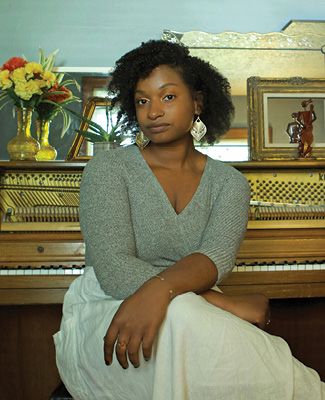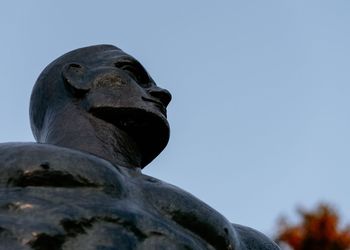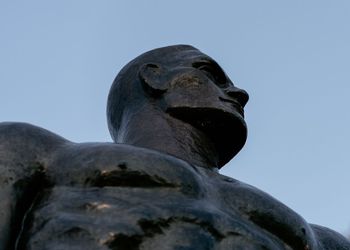Program Increases Sense of Belonging Through Music

Program Increases Sense of Belonging Through Music
Jordyn Davis, ’19, knows what it feels like to be isolated and knows how detrimental it can be to a sense of belonging.
May 16, 2021The co-founder of Color Me Music, an organization designed to support Black, Indigenous and people of color, often referred to as BIPOC, in the MSU College of Music, was the first African American woman to receive a degree in music composition from the college. She was also the only Black student in her environmental engineering classes, which is where she started studying at MSU in 2013.
“My experience as an undergraduate in multiple colleges and as a graduate student had the feeling of not having a sense of community with other students of color,” Davis said. “It was very difficult to make friends as the token Black student.”
When in 2018, Professor Rodney Whitaker connected her and Jadrian Tarver, a fellow graduate student studying vocal performance, they were determined to create a space where BIPOC felt they belonged.
“Professor Whitaker was like, you guys need to talk,” Davis said. “We talked and we are a match made in heaven. We make a great team.”
Color Me Music was born and since then has grown in scope and influence, especially over the past year, when the college came to them in response to widespread Black Lives Matter protests and the desire to recognize and rectify systemic racism in their midst.
Davis and Tarver assembled a group of people of color in the music department and made plans to encourage a sense of belonging. The group has curated concerts, held recitals, hosted social events, and attended lots and lots of meetings.
During the summer of 2020, with the senseless killing of George Floyd and Breonna Taylor, and in the midst of the Black Lives Matter marches, the college approached Color Me Music to better understand how to make the community inclusive and more supportive of students.
On Zoom calls each week with College of Music Dean James Forger and a rotating panel of professors, they shared their experiences as students of color and how the curriculum really was not geared toward non-white people.
“They gave us the opportunity and the platform to meet with different heads of departments—musicology, music education, the marching band—we met with everybody and discussed the things they felt their communities were missing,” Davis said.
“As a result of that, we put together a list of about 10 to 13 action items for the College of Music.”
One thing both pointed out to professors was that Western Classical music dominated the classrooms, ignoring the plethora of 20th-century music being made by non-white people.
Thanks to the efforts of Color Me Music, that is changing.
The meetings focused on diversity, equity, inclusion and belonging issues have translated into real change in the College of Music.
“The music theory and musicology departments have changed their curriculum,” Tarver said. “This year they are introducing African American composers to the repertoire and to the canon, not just white European composers such as Bach and Beethoven.”
Each year has featured a Black History Month recital. In 2021, they had to go digital, but designated the theme as humanizing the Black experience. They have turned to people of color and asked them to share videos and performances that include a variety of experiences—the good, the bad, the ugly and the joyful, Davis said.
The concert is a mix of new and old recordings. It opens with the recent winner of the Social Justice Arts Festival at MSU.
“We’re starting the concert off with music called ‘Delight,’” Tarver said. “One of our members, Sequoia Snyder, shows the side of Black resilience from the emotions of happiness and smiling and joy, emotions often never depicted when showing social justice.”
Color Me Music, which now has 30 to 35 members, will continue under the leadership of Jeremiah Flack and Phoenix Miranda when Davis and Tarver graduate this spring.
Davis expects the group will continue to do what has made them effective change agents.
Contributing Writer(s): Bridgette M. Redman, '91




